Understanding the Legal Impact of High BAC
How high is “too high”, and what does that mean for your case?
What Exactly is BAC?
Blood alcohol concentration or BAC is a measure of how much alcohol is in a person’s blood at a certain time. This measurement is usually shown as a percentage. When someone drinks alcohol, like beer, wine, or liquor, the alcohol will go into their bloodstream. The body will then process the alcohol through the liver to break it down over time. This process is called the metabolization of alcohol.

Blood Alcohol Concentration: How High Is Too High?
Driving a car with a high Blood Alcohol Concentration (BAC) can have serious legal consequences. In North Carolina, the legal limit for BAC while operating a motor vehicle is 0.08%. If an officer has reason to believe that a driver is impaired, they may request a chemical test to measure the driver’s BAC. If the test shows a BAC of 0.08% or higher, the driver will be charged with a DWI (Driving While Impaired).
In North Carolina, a BAC of 0.15% or more is considered “gross impairment” and can result in harsher penalties, including the requirement of an ignition interlock system on your car. Even if your BAC is below 0.08%, you can still be charged with DWI if the officer determines that you are appreciably impaired by alcohol or any other controlled substance.
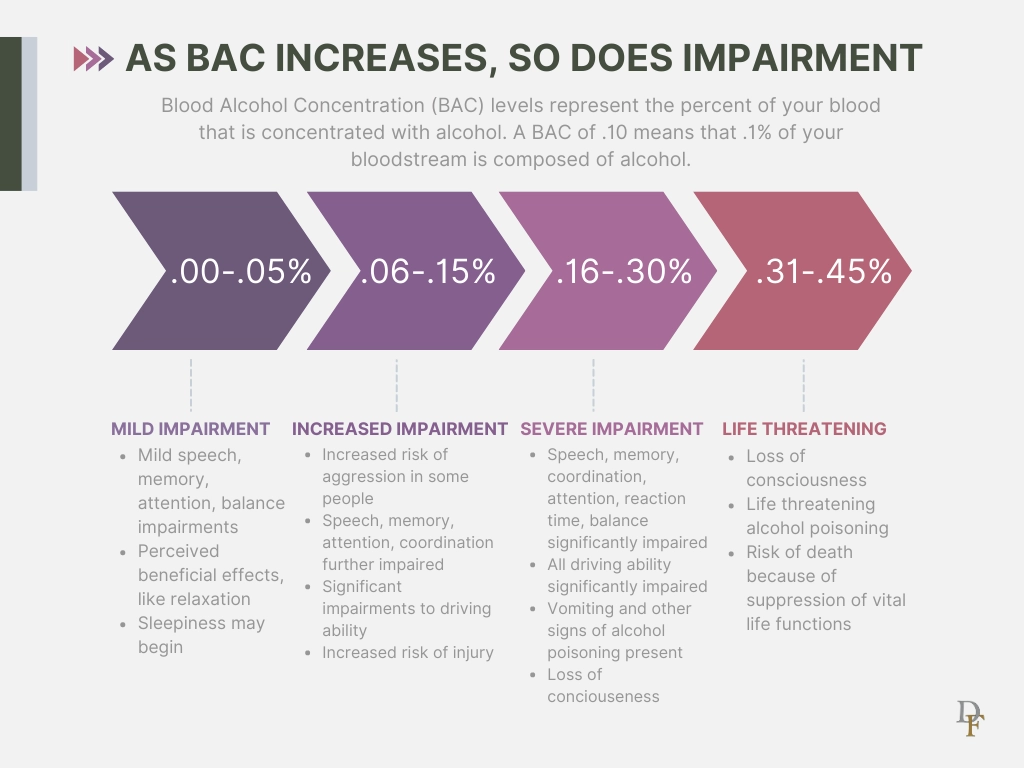
Courtesy of Aware Awake Alive
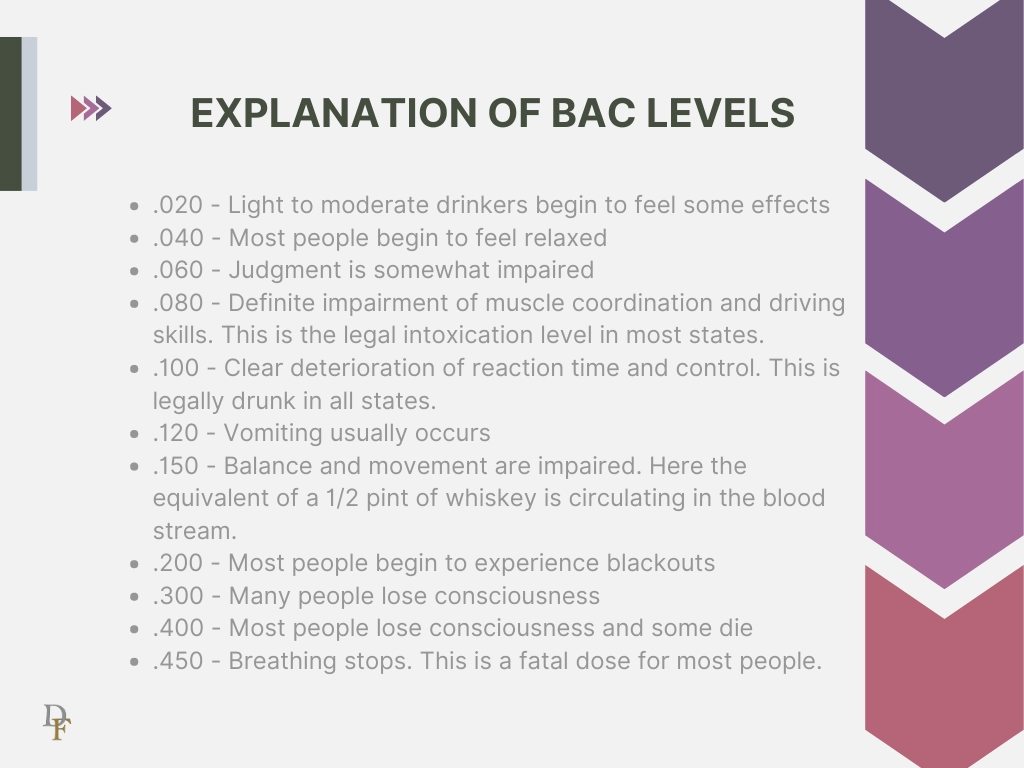
Courtesy of Aware Awake Alive
How It BAC Works
According to the chart, 1 Drink is equivalent to:
- 1 volume ounce of 100-proof alcohol OR
- 1 12-ounce bottle of beer OR
- 5 ounces of table wine
Your liver metabolizes alcohol, reducing your BAC, at a rate of about 0.015% each hour from the time you started drinking. Therefore, you can estimate your BAC by using the chart and knowing how much time has passed from when you had your first drink.
- 1 hour from your first drink: subtract 0.015%
- 2 hours from your first drink: subtract 0.030%
- 3 hours from your first drink: subtract 0.045%
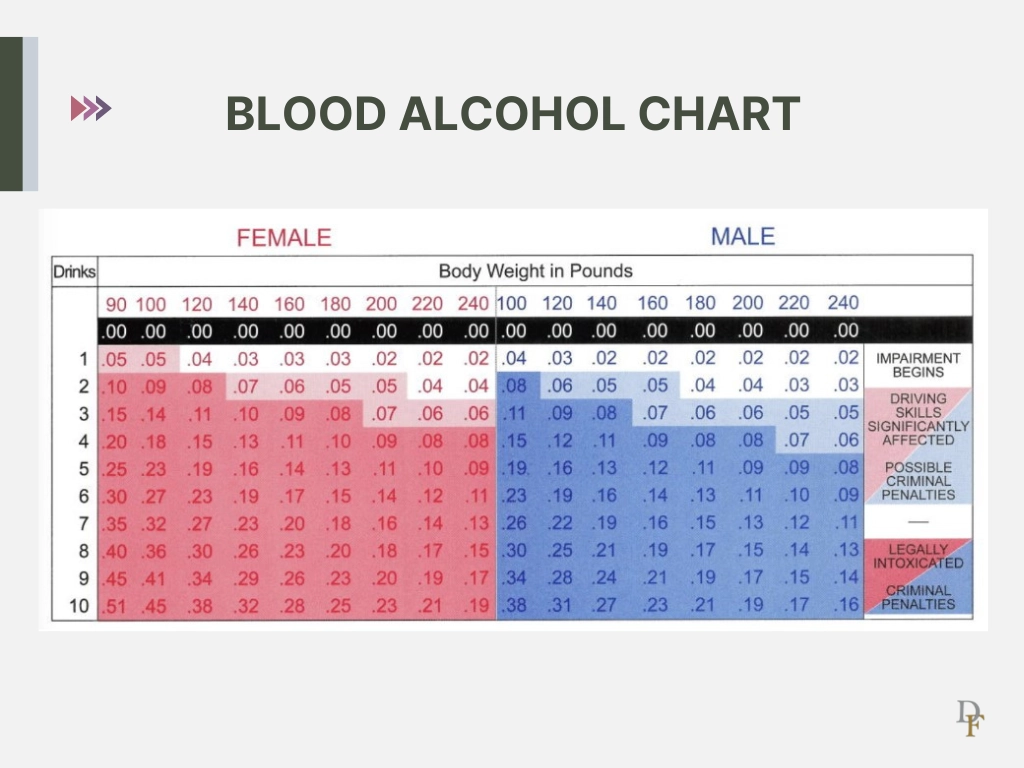
Chart Courtesy of West Virginia Beverage Control Administration
Estimating Your BAC
For example, a 120lb woman who has had 3 drinks in two hours can estimate her BAC by finding the correct number in the chart (0.11) and subtracting the percentage corresponding to the number of hours which has passed (0.03): 0.11 – 0.03 = 0.08% Her BAC is approximately 0.08. She is legally intoxicated, even if she doesn’t feel like she is. These Blood Alcohol Content measurements do not change depending on your tolerance for alcohol. So, even if you think you can handle an extra beer or two and still be alright to drive, your BAC may still be over the legal limit.
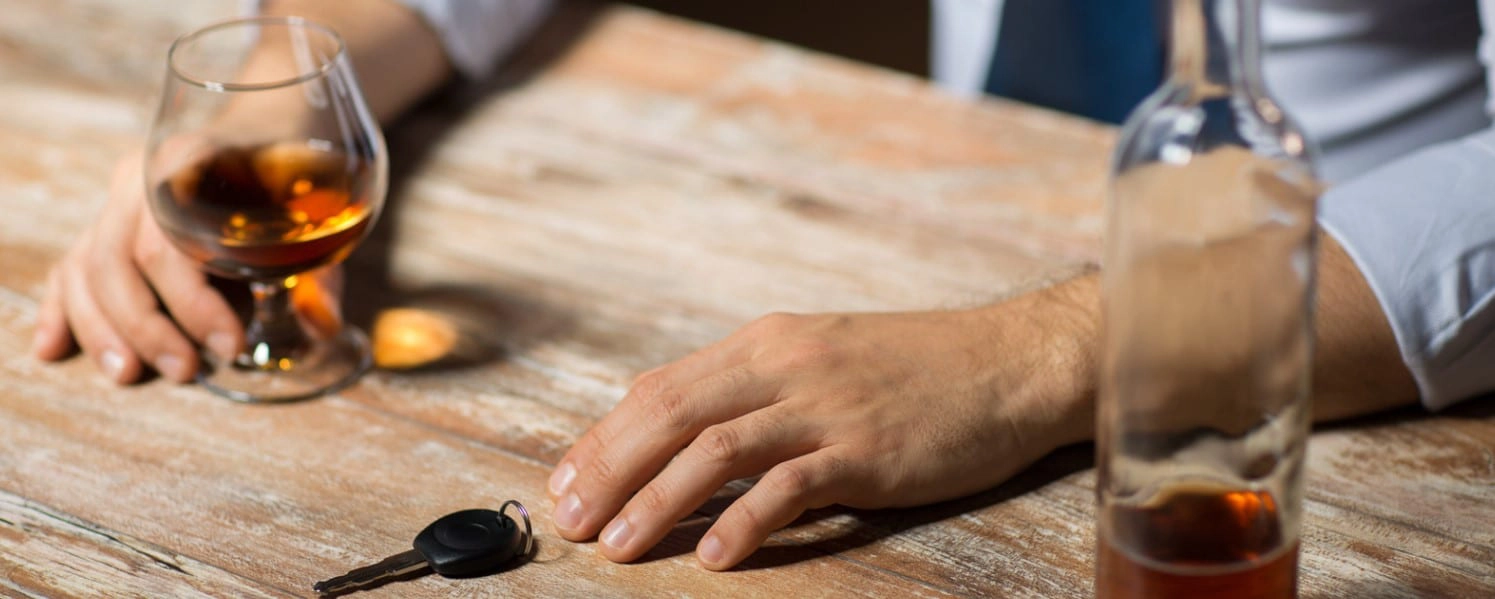
BAC Testing: Breathalyzers vs Blood Tests
In North Carolina, law enforcement usually tests a person’s BAC with a machine called a breathalyzer or an Intox EC/IR II during a DWI case. The State has rules and regulations for using the machine and making sure it’s working correctly. If the State wants to use the results from this test in a court case, they must show the machine was working properly, it was checked and maintained, the person was watched for 15 minutes before the test, and a certified analyst was the one who administered the test.
Sometimes law enforcement uses a blood test, either with the person’s permission or with a court order, to obtain a person’s BAC. The blood test is taken by a doctor, nurse, or other trained personnel at a hospital or medical facility. Law enforcement then takes the blood sample and sends it to the State crime lab to be tested. A certified chemical analyst will test the blood and record the results in an affidavit. All parties involved in the case will then receive a copy of this affidavit. However, testing is not a fast process, and sometimes the results can take up to a year to receive, especially if the BAC result is .07% or less since the analyst might test the blood for other things like drugs.
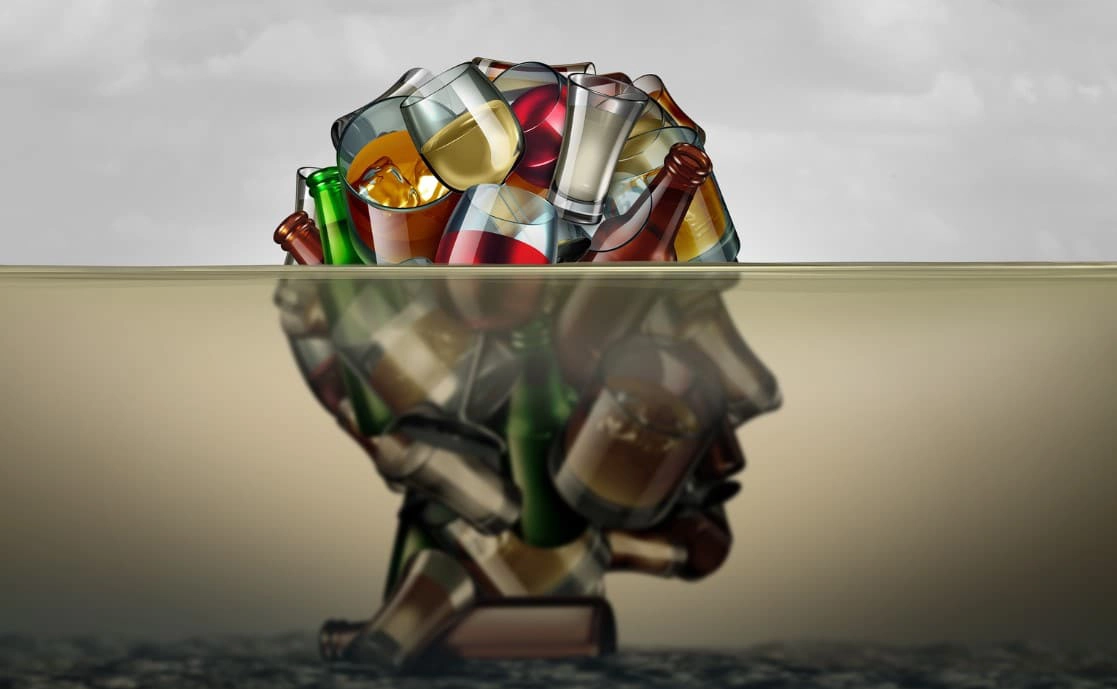
Independent BAC Testing: Know Your Rights
If you have had your blood tested by the State, you have the right to have your blood retested by a different lab. This is usually done to check the accuracy of the BAC results found by the State crime lab. You have the right to know what your BAC was at the time of the alleged offense and you don’t have to trust that the State crime lab made no mistakes. This independent test can provide an additional piece of evidence in your defense. You or your lawyer can arrange for the independent blood test to be done, but you will need to pay for it yourself as the State will not cover the cost. But be warned, these tests often cost upwards of $600, so unless you are sure of the outcome, it may not be the most cost-effective option. If you do choose to get an independent test you should do it as close in time as possible to the test done by the State.
Consequences of Driving With a High BAC
If you are caught driving with a BAC over the legal limit, you will be charged with DWI. You might be charged with DWI even if your BAC isn’t over the limit if the law enforcement officer determines you are sufficiently impaired. And, if you are convicted of DWI, you may face:
- Fines
- Jail Time
- Loss of Driver’s License
- Higher Insurance Rates
- Difficulty Finding Jobs
- Financial Strain
- A Permanent Criminal Record
The consequences can be even more severe if this is not your first DWI offense or if someone was injured or killed as a result of your impaired driving.
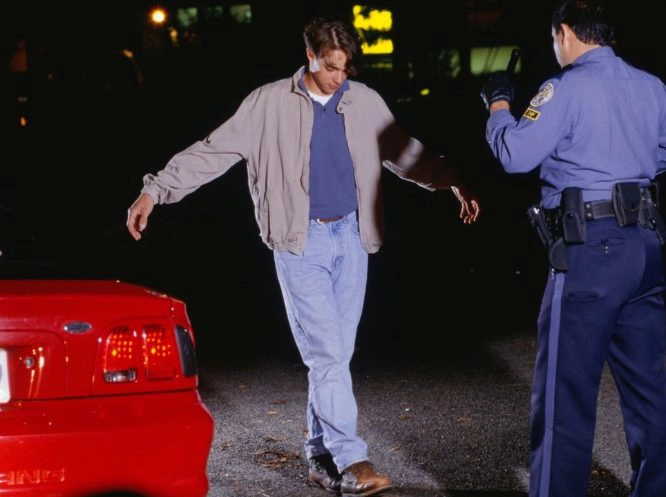
Contact Us
When you’re stopped by law enforcement, the amount of alcohol in your blood is an important factor. If you’re facing a DWI charge, it’s important to know how blood testing works and how much it will cost financially and legally. A lawyer experienced with DWI defense can help you understand your case, the potential consequences you’re facing, and give you the best chance for a good outcome. DWI charges are serious, let us help protect your rights and your future. Contact us at Dummit Fradin right away.
Visit One of Our Office Locations

Winston-Salem
Criminal & Immigration Attorneys
1133 West First Street
Winston-Salem, NC 27101
(336) 485-4907
Winston-Salem
Family Law Attorneys
3400 Healy Drive
Winston-Salem, NC 27103
(336) 962-7221
Greensboro
Criminal & Family Law
328 E. Market Street
Greensboro, NC 27401
(336) 360-5528
High Point
Criminal & Injury Law
820 North Elm Street
High Point, NC 27262
(336) 814-8118
Our service area includes Forsyth County, Guilford County, Surry County, Stokes County, Yadkin County, Davie County, Davidson County, Randolph County, and Alamance County.
